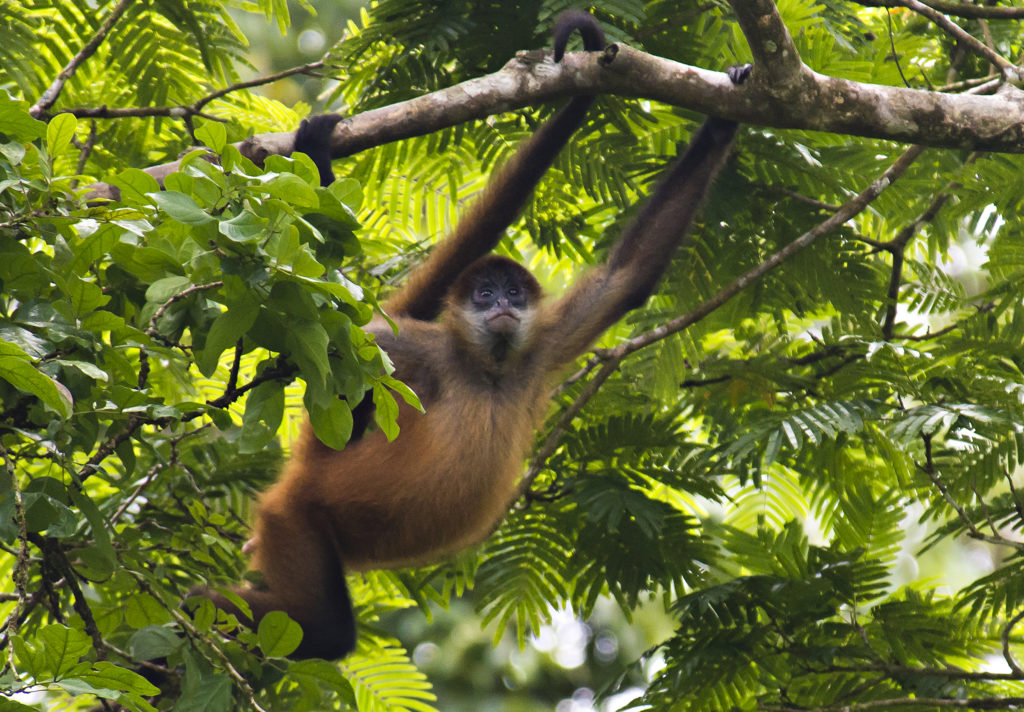The black-handed spider monkey (Ateles geoffroyi) is the New World’s largest and most intelligent primate. However, these graceful and sensitive creatures face many challenges. They are extremely sensitive to habitat destruction because they live only in the forest canopy. Forest canopies must be connected in order to link spider monkeys across the landscape, but the dry tropical forest ecosystem is extremely fragmented. Making it worse, these monkeys have been hunted for food, and young monkeys are often captured in the wild and sold into the illegal pet trade where they are held in inhumane conditions as household pets. The black-handed spider monkey is not only critically endangered, it is now locally extinct throughout much of northern Central America.

Since 2005, Paso Pacífico has worked with western Central America’s black-handed spider monkeys in the hope of bringing the species back. We have formed teams of community forest rangers who patrol the forest, protecting wildlife and collecting valuable data about the monkeys. Some of them also help educate community members and care for rescued monkeys housed in the Karen Warren & Susan White Spider Monkey Sanctuary. In late 2016, we entered into co-management of a 120-acre-property with mature dry forest in the heart of the Paso del Istmo wildlife corridor. We named it the Mono Bayo Reserve, after mono bayo, the local name for the black-handed spider monkey. In 2019, we started a second ranger team to safeguard monkeys in the Paso del Golfo wildlife corridor in eastern El Salvador.
We have also been studying the spider monkey population more in depth. Camera traps in the forest canopy help us follow the primates’ movements and better understand their needs for corridors. Additionally, remote sensing has helped us analyze the forest cover across the entire landscape to find “pinch points” where the monkeys most need a forest path in order to travel. With help from partners and local tree nurseries, we have planted over one million trees to give the spider monkeys both food and habitat where they are most needed.

Since we began, the population of black-handed spider monkeys in area of the Mono Bayo Reserve has increased by 60 percent! This decades-long work has been possible through a range of supporters, including Zoo Boise, the Disney Conservation Fund, Prince Bernhard Nature Fund, Primate Conservation International, and Margot Marsh Biodiversity Foundation.
Now, we are working to strengthen the ranger teams and set aside more core spider monkey habitats like the Mono Bayo Reserve. Key properties are currently up for sale. Please email us today if you would like to help Paso Pacífico get these properties.
Black-handed spider monkeys are beautiful and intelligent primates. Do you want to be a part of protecting these amazing creatures? Donate today!
.
